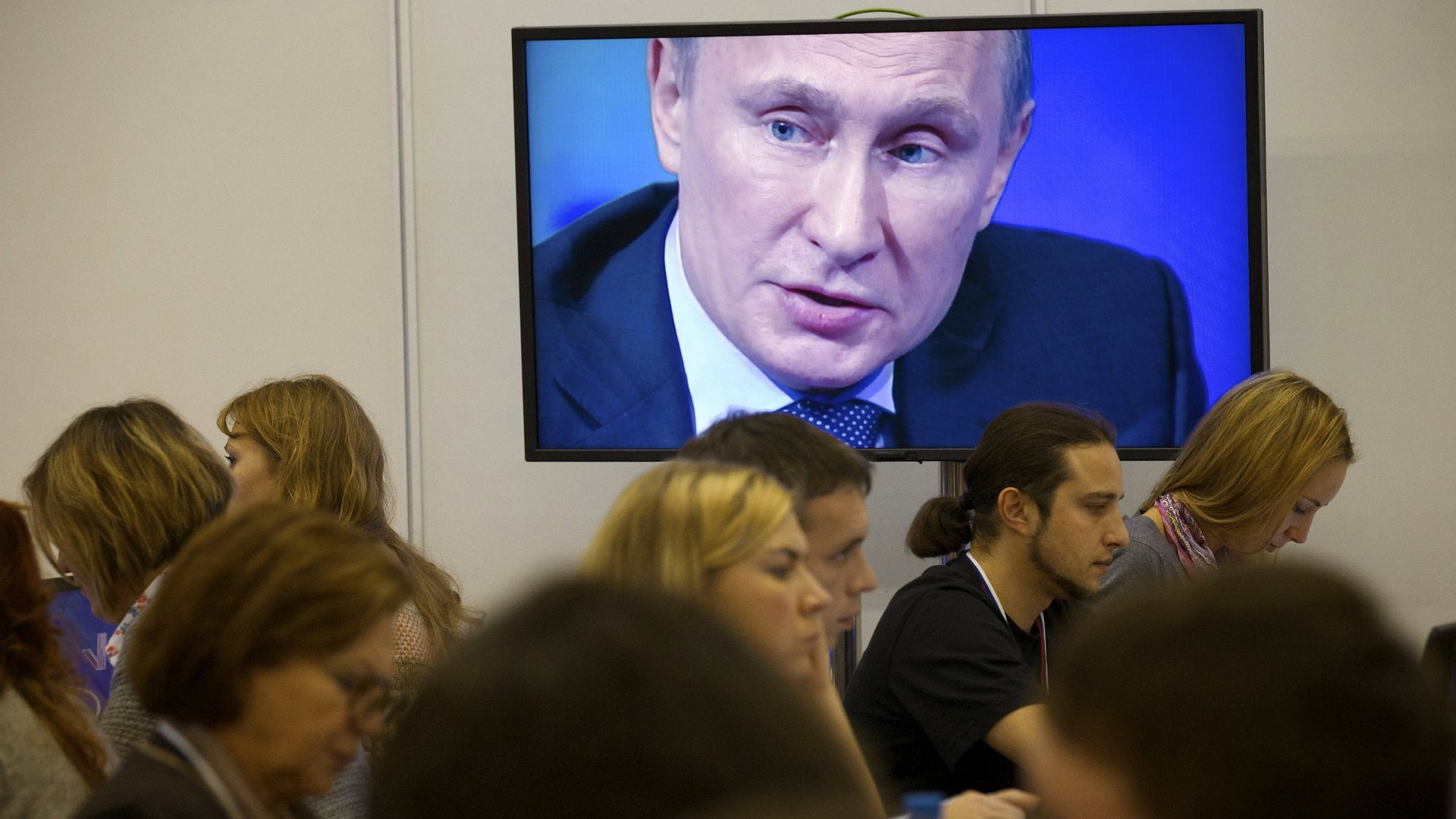Vladimir Putin’s media takeover illustrates some of Russia’s scariest traits
With no warning, Russian President Vladimir Putin on Monday dissolved Russia’s main state news agency, created a new one from its ashes, and appointed as its head a man who doesn’t think gay people shouldn’t be allowed to be organ donors. The move simultaneously underlined concerns over Putin’s penchant for authoritarianism, Russia’s restrictions on the media, and the country’s increasingly demonstrative homophobia.


With no warning, Russian President Vladimir Putin on Monday dissolved Russia’s main state news agency, created a new one from its ashes, and appointed as its head a man who doesn’t think gay people shouldn’t be allowed to be organ donors. The move simultaneously underlined concerns over Putin’s penchant for authoritarianism, Russia’s restrictions on the media, and the country’s increasingly demonstrative homophobia.
According to the surprise decree, RIA Novosti will be replaced by a new agency, Rossiya Segodnya (Russia Today), which will aim to “highlight abroad the state policy and public life of the Russian Federation.” Putin’s supposed rationale: increasing efficiency and improving coverage. “Russia has its own independent politics and strongly defends its national interests: it’s difficult to explain this to the world but we can do this, and we must do this,” Sergei Ivanov, head of the presidential administration, was quoted as saying.
It’s not as if Putin was getting much scrutiny from reporters: Most media outlets are already friendly to him. But the takeover of RIA Novosti underscores Putin’s desire to stifle dissent and tightly control his image. RIA Novosti, reporting on its own shuttering, noted that “the move is the latest in a series of shifts in Russia’s news landscape, which appear to point toward a tightening of state control in the already heavily regulated media sector.” Russia is not a friendly place for journalists, either. The country slid six places from last year to 148 out of 179 countries in the 2013 Reporters Without Borders Press Freedom Index.
And then there’s Dmitry Kiselyov, the conservative news anchor and Putin loyalist who will head the new agency. Gays “should be forbidden from donating blood, sperm,” he said last year. “And in the case of an automobile accident, their hearts should be buried in the ground or burned.” Intolerance toward gays is in the spotlight ahead of the Sochi Olympics, set for February, after Russia in June passed a law banning gay “propaganda.” Protesters in the country who advocate gay rights have faced violent attacks—but don’t expect to hear much about them from Rossiya Segodnya.